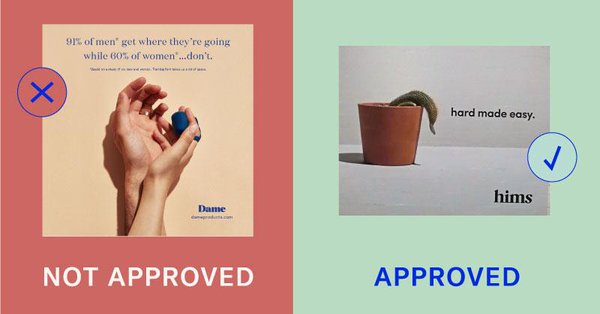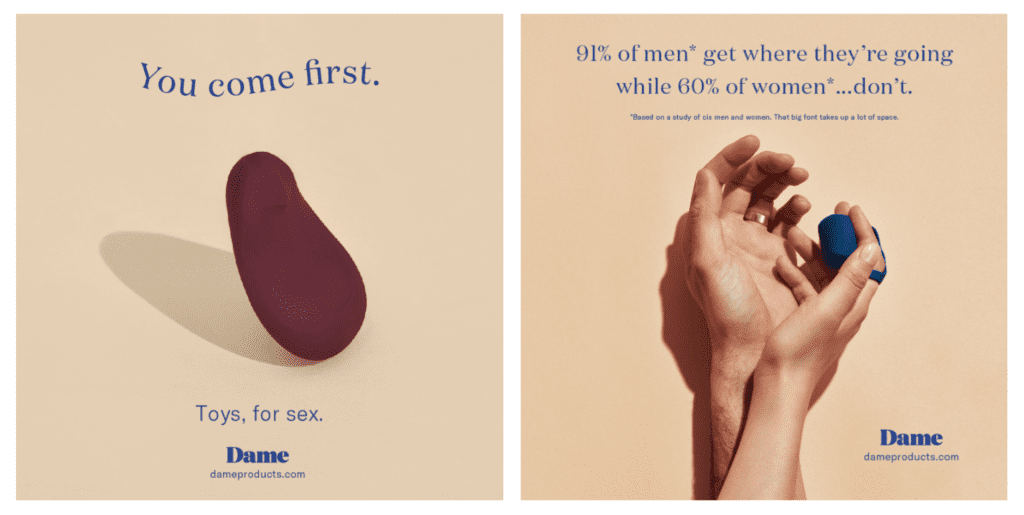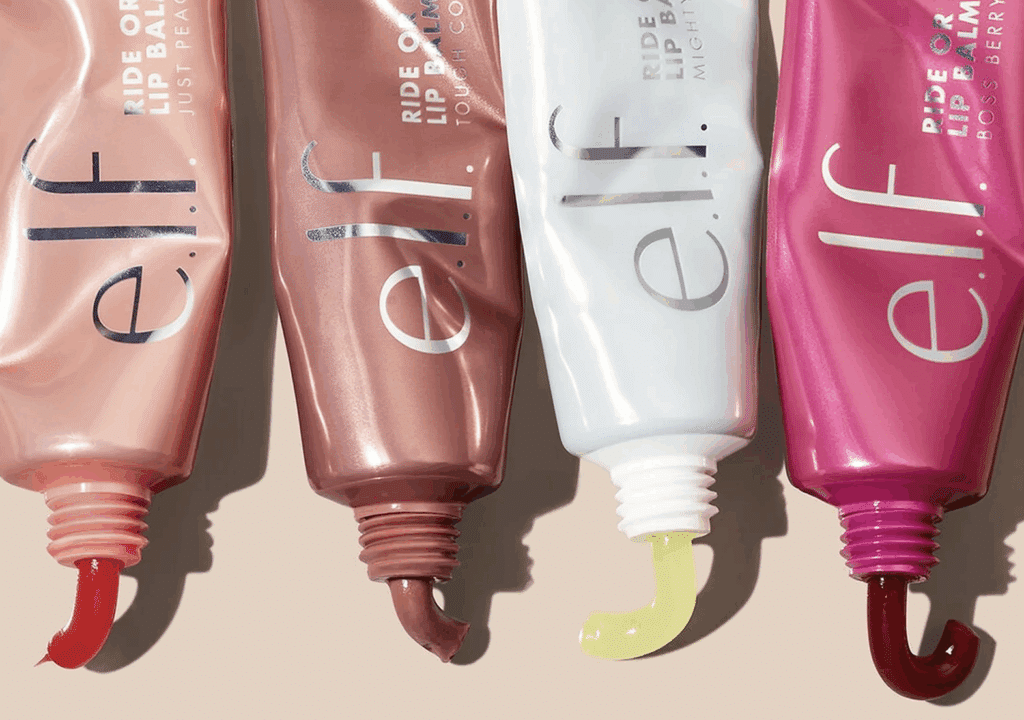New York’s Metropolitan Transportation Authority (“MTA”) rejected ads for sex toys manufactured by women’s sexual-health startup, Dame Products, and has landed itself in court on the wrong end of a first amendment lawsuit as a result. According to a complaint filed by the four-year-old brand filed in a New York federal court on Tuesday, by banning its ads from New York City subway cars, MTA exhibited “sexism” and “privileged male interests in its advertising choices,” thereby, running afoul of Dame’s rights to free speech and equal protection under the First and Fourteenth Amendments.
Dame asserts in its 40-page complaint that in May 2018, it created its pitch to the MTA, and in June, submitted ads to the MTA. Following three rounds of costly revisions on the part of Dame in response to the MTA’s “uneasy sense regarding the undertone of the ads,” the MTA informed Dame that is would be unable to ads because “the proposed ads promote a sexually oriented business, which has long been prohibited by the MTA’s advertising standards.
Despite “previously welcoming advertisements that celebrate human sexuality and openly discuss sexual health and function,” Dame asserts, “the MTA excluded [it] from this vibrant public discourse and denied Dame coveted advertising space.”
In its complaint, Dame points to evidence that shows that the MTA has previously run sex-centric ads, including: (1) “a sign promoting a travel booking company proclaims: ‘Get Wet. (On the beach, not from the guy next to you),’ (2) an advertisement for ‘Kyng’-sized condoms, and (3) an image of a woman, midriff exposed and bra visible beneath her sheer shirt and an ad which touts female libido medication, reads: ‘Turned on. On your terms.’”
 One of Dame’s ads (left) & one of hims’ MTA-approved ads (right)
One of Dame’s ads (left) & one of hims’ MTA-approved ads (right)
Nonetheless, the MTA refused to run Dame’s ads, which include photos of sex toys alongside transit-aligned slogans, such as “You come first,” “Some riders need extra help getting off,” and “Only 4 percent of female riders can get off trains that just stay in tunnels.”
As such, Dame claims that “in 2019, the MTA’s Victorian view of female sexuality and the First Amendment cannot stand. The MTA’s censorship of Dame’s advertisements cannot stand. All New Yorkers—and all women—deserve better.”
Because the advertising space on the side of an MTA bus or the inside of an MTA subway car is a designated public forum in the eyes of the Constitution, (and has been, per the Nation, “since ads first made an appearance on the city’s subways in 1904”), “the government” – the MTA is a New York state-owned entity – “is prohibited from discriminating on the basis of the speaker’s viewpoint.” By “arbitrarily” refusing to run Dame’s ads, “citing only a bogus interpretation of its own advertising regulations ginned up for the sole purpose of quashing Dame’s proposed images,” the MTA is discriminating “on the basis of viewpoint in contravention of the First Amendment.”
More than that, Dame asserts that by “intentionally treating [the company] differently than similarly situated businesses whose advertisements have been approved and displayed on MTA Property,” the MTA has failed to provide it with equal protection under the Fourteenth Amendment.
Dame is seeking damages in the form of an injunction requiring the MTA to “approve and display Dame’s advertisements” and compensatory damages.
A spokesman for the MTA said in response to the suit that the agency is “constitutionally entitled to enforce reasonable restrictions on what ads appear” and that the current guidelines are “in no way gender-based or viewpoint discriminatory.” The rep notes that while MTA’s advertising guidelines allow for the advertising of FDA-approved medication, including when it is related to sexual health, “advertisements for sex toys or devices for any gender are not permitted.”
*The case is Dame Products v. Metropolitan Transit Association, et al, 1:19-cv-05649 (SDNY).














